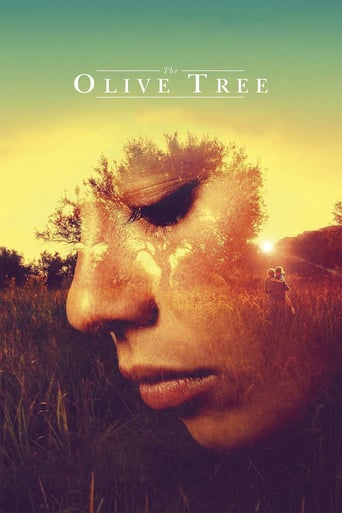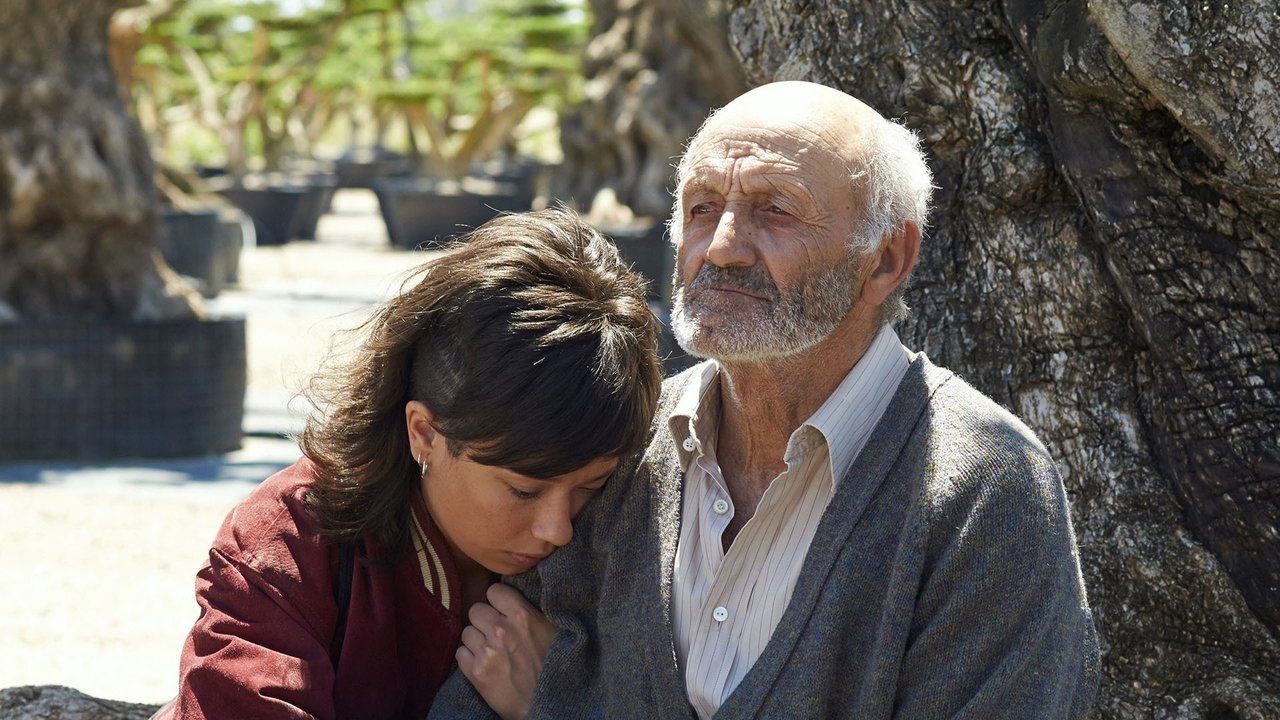Kirpianuscus
...who has many chances to be yours. because the subject is more than familiar. the script - wise reflection about contemporary society and its clash against tradition, about a sort of love who only the grandparents and grandchildren knows it, a trip who has as purpose a form of justice who escapes to definitions. a confession - film. because, it is so easy to discover yourself as Alma. so, a tale. a simple one. but useful. for remind . an old man, his olive tree and a gesture changing everything. that is all.
Horst in Translation (filmreviews@web.de)
"El olivo" or "The Olive Tree" is a Spanish full feature film from this year that runs for approximately 95 minutes and as there is a road movie component to it, there are all kinds of languages included in here. The writer is Indian-born British filmmaker Paul Laverty and not too many will know him. However, the director (female filmmaker Icíar Bollaín) as well as the cast are exclusively or almost exclusively Spanish. This is probably one of the more known films from Spain this year, even if the cast are probably only known to Spanish people. Lead actress is the young Anna Castillo and she plays a woman trying to get back her grandfather's beloved olive tree when her granddad is clearly struggling with his health and he has been missing the tree for years after the family decided it had to be cut for financial reasons (over sentimental reasons).I personally enjoyed the watch for the most part. There were parts and sequences that should have been left out, but I will come to these in a second. While I did not think Castillo was bad in the lead role, I still felt repeatedly while watching that I would have preferred the actress who plays the main character's friend, the one with the kinda short punk-style haircut, in her role instead. But you can't always get what you want. The weakest moment for the film was perhaps when they randomly through in a reference about the main character being touched inappropriately on several occasions as a child. What was that? You cannot do that without elaborating any further on it. Oh well... I generally would say that the second half of the film was better than the first because we actually found out more about the characters and there was more character development while the presentation part in the first half, also with the early phase of the road trip was just too long. I do believe they should have included the flashback scenes as at least one third of the movie and not just five minutes. I must say the fact that we saw so little from early when she was a child hurt the film's emotional impact by a lot.But away from the negative, lets focus a bit on the positive now: I thought this was a really interesting and well-done film from the moment when they arrived at Dusseldorf. The company's actions seemed realistic and I also liked the reference to the ending in terms of happiness. Happy ending, I mean. It would have been pretty unrealistic if they had actually managed to get the tree back, but the way with planting a new one it was still fairly optimistic. Life goes. Life rises. And may this new olive tree be indeed luckier than the last one. The social media campaign component of the film is fine overall I guess. I can see it become a bit of a spectacle, but maybe it all went to fast. Then again the ride to Germany was much longer than it may have seemed for us audience members. As a whole, there were a handful scenes I was not too fond of and the dialogue writing also wasn't perfect on many occasions, but I still believe it is a solid little tale, especially after minute 50, and the positive outweighs the negative. Watch it if you can.
Ruben Mooijman
Alma is what you call a wild girl. She has partly shaved her hair in a decorative pattern, sleeps with boys she hardly knows and throws eggs at the cars of people she doesn't like. But she has one weak spot: her grandpa. Not only is she extremely fond of him, she also sympathizes with his silent protest against the sale of the oldest tree in the family's olive grove. Since the tree was sold, he refuses to speak and marks the spot where the tree stood with little stones.Alma, sensing that her grandfather's death is coming near, starts a search for the sold tree. Through the company who organized the sale she discovers that the tree is now standing in the lobby of a big energy company in Germany. In a whim, she convinces her uncle and a friend to retrieve the tree, in order to let her grandpa die in peace.The film has a nice plot, but is also a clear warning against the excesses of capitalism. The central theme is that there are things that cannot be expressed in monetary value. When Alma's grandfather is told that the tree is useless because nobody buys expensive olive oil anymore, he answers that the tree doesn't belong to him, 'it belongs to history'.On a second level, the film shows Spain after the financial crisis. Alma's uncle is a ruined man, who has used the proceeds of the tree to bribe the local mayor, in order to get a permit for a seafront restaurant that has since gone bankrupt. The film starts with a practical joke: Alma calls her uncle, pretending to be a bank employee collecting the outstanding debt. That's a nice joke, but with a clear message.The screenplay for the film was written by Paul Laverty, a writer with a keen sense for social justice who has written several social dramas for Ken Loach. In some of these, the emphasis was too much on the social aspect, but in El Olivo the mix between the character interaction, the social comment and the human emotion is just right. Talking about human emotion: anyone who is not touched by the last scenes, has a heart of stone.
Nozz
The film opens with a telephone prank, reminding me as an American that it's to the Spanish we largely owe the art of pulling someone's leg and of amusing exaggeration. But the prank introduces an important theme, also Spanish, of who's getting the upper hand at whose expense. And the additional theme of how hard it is to retain a traditional sense of honor under 21st-century economic pressures. The plot is of the very simplest-- save the ancient olive tree!-- but the characters have side concerns of their own which, while not indispensable to plot, serve to humanize the movie and inspire empathy. The man beside me in the theater remarked two or three times, "Excellent acting." Nice music, too, and flashes of humor. My wife, who knows a little Spanish, let me know how colorless the English subtitles (here in Israel, anyway) were in comparison.


 AD
AD
